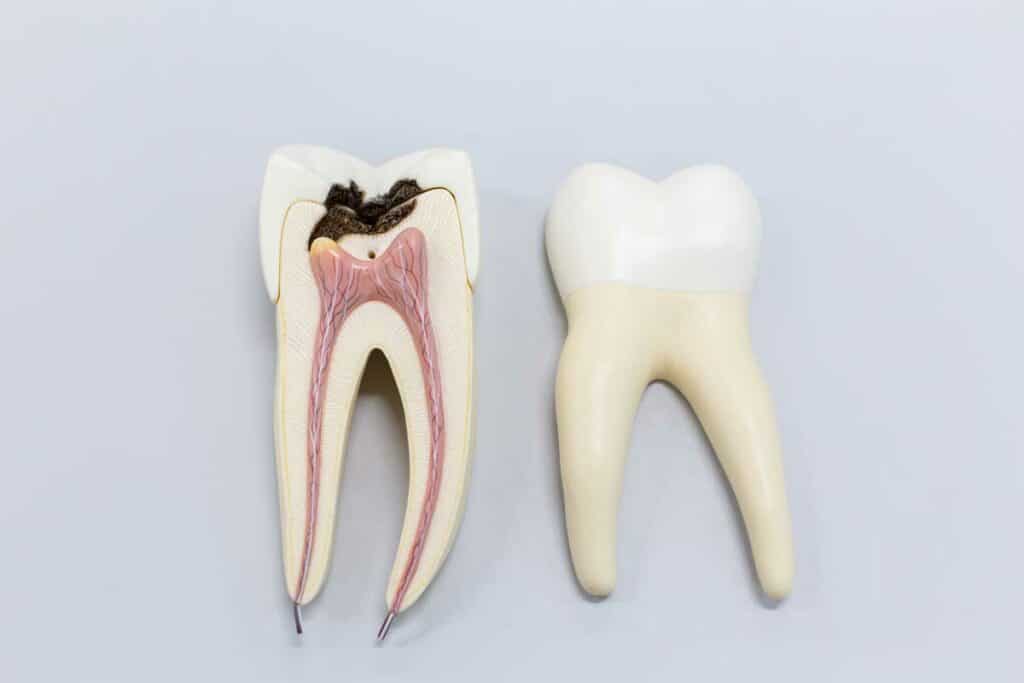Endodontology
What is a root canal treatment?
Why is a root canal treatment necessary?
When your tooth is damaged, bacteria can enter it. This leads to irritation, pain and swelling. If the pulp inside the tooth becomes infected, it can spread to the pulp in the root canal.
The aim of a root canal treatment is to prevent infection by removing the damaged pulp, so that your tooth does not have to be extracted.
If the infection is not treated, it can spread further and cause an abscess, a collection of pus. This can be painful and tender, and can cause swelling around the tooth and jaw.
Sometimes, the tooth looks darker than the other teeth, which means the nerve inside the tooth has died or is dying.
What are the alternatives to a root canal treatment?
A root canal treatment is designed to save teeth so that you can keep a healthy, natural smile. The alternative to a root canal treatment is to have the tooth removed completely, as the infection will not go away on its own.
We will always try to preserve your natural tooth whenever possible, but we may suggest removing the tooth if it is badly damaged, or if you have severe gum disease that is preventing your tooth from healing after treatment.


